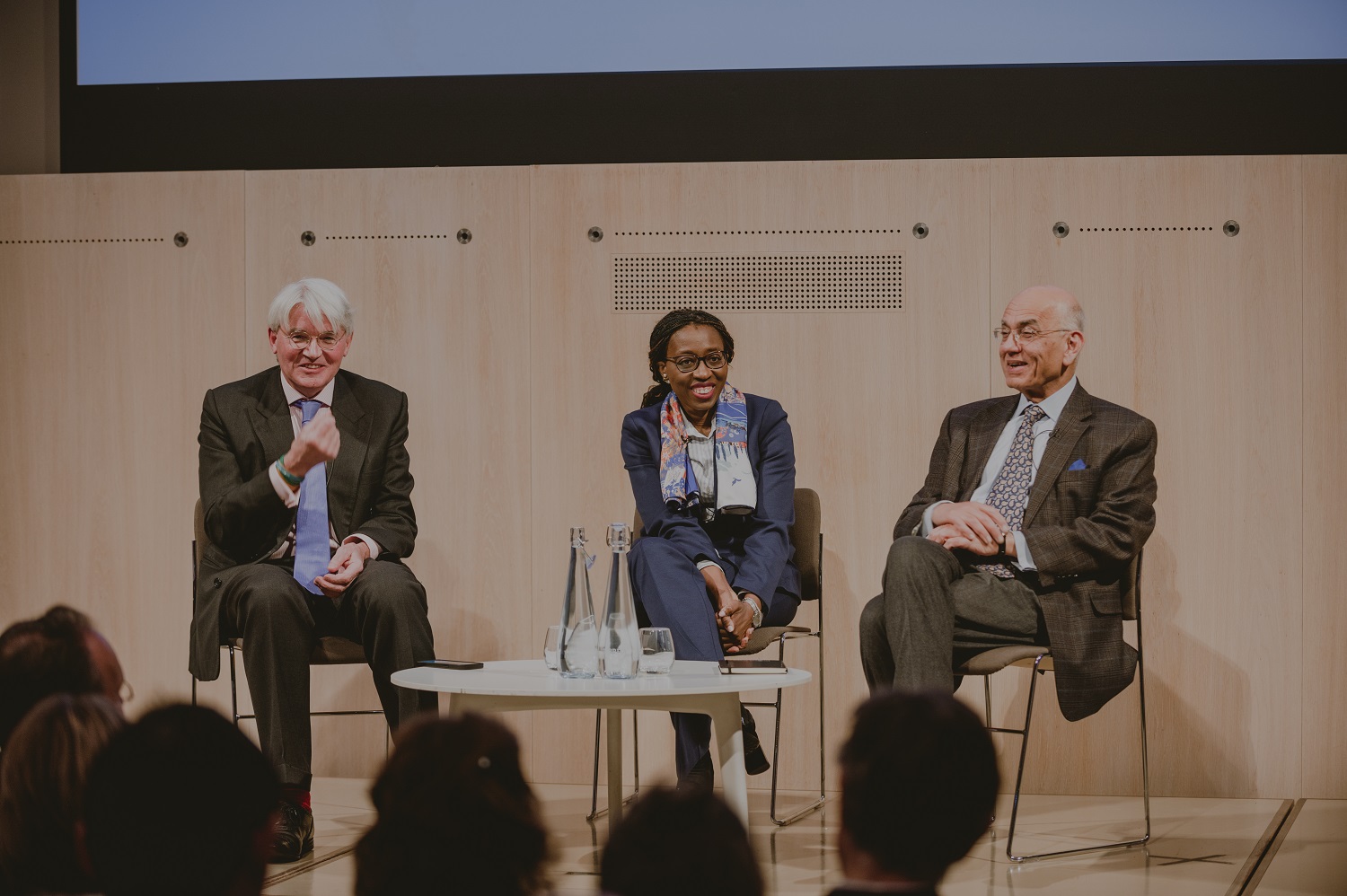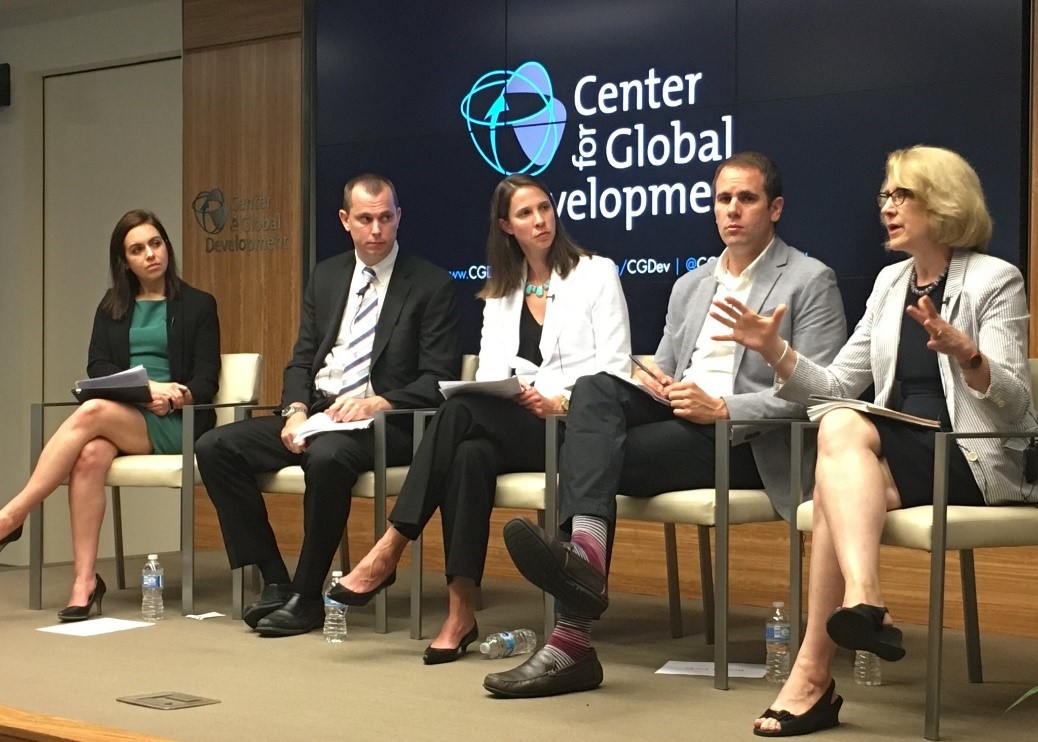President-elect Donald Trump campaigned on a promise to "make America great again." Development may not be high on his agenda, but he will come into office at a time when Americans are more dependent than ever on the global economy and when global challenges can threaten Americans’ security at home. As CGD’s White House and the World project puts it, “what happens abroad matters at home.” And effective US development policy, while no cure-all, can make a difference. It can help open markets to US businesses and others. It can build partnerships to strengthen health systems to prevent the next pandemic from reaching our shores. And US development policy can—and has—lifted millions out of poverty.
Today, it is worth revisiting both why US leadership on development matters and how it can be improved. As Nancy Birdsall and Ben Leo wrote in White House and the World:
Effective global development policies are central to maintaining America’s stabilizing leadership in the world, improving Americans’ livelihoods, and growing America’s markets overseas for the coming decade. With responsibility to protect the American people and promote their prosperity, the next US president must develop and promote a unifying strategy that addresses vexing global threats while also advancing US commercial and foreign policy interests. Such a strategy must deploy the full range of military, diplomatic, and development tools available to the US government in a coordinated and cohesive manner. In this century, global development policy — and one that includes trade, investment, and migration as well as foreign aid — is no longer just the right thing to do. It is a sound investment in America’s long-term security.
Many of the security threats that imperil Americans have arisen in settings where democracy and development have never taken root — or were stalled or reversed before they were consolidated. Destructive and destabilizing conflicts are raging in Syria, Iraq, Libya, and Yemen. Afghanistan faces a highly uncertain transition as US troops withdraw and the foreign engagement–led boom declines. Weak or failed states — such as Somalia — remain a haven for armed groups that destabilize and undermine development progress in their neighbors. Religious extremism in Nigeria, the Sahel, and the Middle East puts democracy and human freedoms in fledgling economies at risk. These freedoms appear fragile, or even on the retreat, in Egypt, Myanmar, and a number of Sub-Saharan African nations.
Other global and regional challenges also undermine progress in poor countries and threaten Americans’ own future. The Ebola crisis in West Africa — exacerbated by weak health systems and the lack of a timely global response mechanism — was a frightening reminder of the risks of global pandemics. Gender discrimination, corruption, lack of opportunity, and repressive governments in many parts of the developing world are an affront to universal values. America is often the only actor capable of marshaling the resources, political capital, and technical know-how required to address these tough issues.
In addition to security threats, the US economy and the American workforce are more reliant than ever on developing-country markets. US exports to developing countries have grown by more than 400 percent over the last 20 years. Today, they total more than $600 billion annually and are greater than US exports to China, Europe, and Japan combined. Brazil, Colombia, India, Korea, Malaysia, Turkey, and other countries are leading markets for US exports. Three decades ago, these were relatively poor countries that offered limited US export potential. Populous countries like Bangladesh, Ethiopia, and Nigeria have the potential to be the next wave of emerging markets. It makes strategic sense to further advance America’s global prosperity agenda, thereby helping to grow middle-class societies that drive democratic change, promote peace with their neighbors, and reliably purchase US products and services.
While the list of challenges is long, US global leadership has contributed to tremendous progress throughout much of the world. Over the last 25 years, health and education outcomes have improved at a pace previously unknown in human history. Life expectancy has increased by nearly a decade in poor countries. Child mortality has nearly halved. Girls in poor countries are almost two times more likely to complete secondary schooling. Seemingly intractable conflicts in Africa and other regions have been contained. Democratic freedoms are demonstrably higher than during the Cold War era. US engagement and leadership has played a critical role in helping to achieve these remarkable gains in human well-being and in greater long-term security for people around the world, as well as for Americans.
In the months and year ahead, CGD experts will continue to look for the practical, evidence-based ideas that offer a win-win for all countries, rich and poor. We’ll analyze the new administration’s policies and pronouncements and work to make them better for people around the world.
Disclaimer
CGD blog posts reflect the views of the authors, drawing on prior research and experience in their areas of expertise. CGD is a nonpartisan, independent organization and does not take institutional positions.





